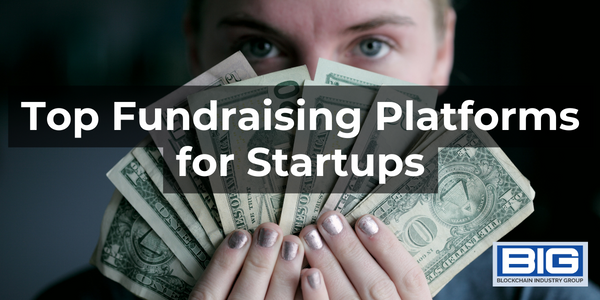
There are many fundraising platforms available for startups looking to raise funds, including AngelList, Seedrs, Wefunder, Crowdfunder, CircleUp, Fundable, Kickstarter, Indiegogo, Republic, and Fundable by Fundable. These platforms offer a variety of options for raising funds, including equity crowdfunding, rewards-based crowdfunding, and debt financing. Some are geared towards specific sectors, such as consumer and retail brands, while others have a more general focus and a large global community of backers. By considering these top fundraising platforms, startups can find the right fit for their needs and increase their chances of success in raising the funds they need to grow their businesses.
- AngelList. AngelList is a popular platform for startups looking to raise seed or early stage funding. It allows founders to connect with a network of angel investors and venture capitalists, and offers a variety of tools to help founders create and manage their fundraising campaigns.
- Seedrs. Seedrs is a crowdfunding platform specifically geared towards startups and early stage businesses. It allows companies to raise funds from a large pool of investors in exchange for equity.
- Wefunder. Wefunder is another crowdfunding platform that allows startups to raise funds in exchange for equity. It’s known for its large community of investors and easy-to-use platform.
- Crowdfunder. Crowdfunder is a crowdfunding platform that offers a variety of options for startups looking to raise funds, including equity crowdfunding, rewards-based crowdfunding, and donation-based crowdfunding.
- CircleUp. CircleUp is a crowdfunding platform that connects startups with accredited investors looking to invest in consumer and retail brands. It offers a range of fundraising options, including equity crowdfunding and debt financing.
- Fundable. Fundable is a crowdfunding platform that allows startups to raise funds in exchange for equity or rewards. It’s known for its comprehensive marketing tools and support for founders.
- Kickstarter. Kickstarter is a well-known crowdfunding platform that allows startups to raise funds in exchange for rewards. It’s geared towards creative projects and has a large community of backers.
- Indiegogo. Indiegogo is another popular crowdfunding platform that offers options for both equity crowdfunding and rewards-based crowdfunding. It has a large global community of backers and offers a variety of marketing tools and support for founders.
- Republic. Republic is a crowdfunding platform that allows startups to raise funds in exchange for equity. It’s geared towards companies in the tech and consumer sectors and offers a range of resources and support for founders.
- Fundable by Fundable. Fundable by Fundable is a fundraising platform that offers a variety of options for startups, including equity crowdfunding, rewards-based crowdfunding, and debt financing. It’s known for its comprehensive support for founders and its network of accredited investors.
The Visionary Entrepreneur: Elon Musk
—
Tokenomics in Action: Harnessing Blockchain for Successful Fundraising in the AI Industry
—
Top 10 Hidden Gem Entrepreneurship Bloggers
There are a few disadvantages to using fundraising platforms for startups to consider. One disadvantage is the cost. Many fundraising platforms charge fees for their services, which can add up and eat into the funds that you are trying to raise. Another disadvantage is the lack of control. When using a fundraising platform, you are at the mercy of their rules and processes, which can be inflexible and may not align with your specific needs. Finally, there is a risk of failure. Not all fundraising campaigns are successful, and if your campaign falls short, you may end up with nothing to show for your efforts.
Instead of relying solely on fundraising platforms, there are a few other options to consider. One option is to seek funding from traditional sources such as venture capital firms or angel investors. This can be a more personalized and flexible approach, but it also requires more effort on your part to build relationships and pitch your company. Another option is to consider alternative sources of funding, such as grants, loans, or crowdfunding platforms that don’t charge fees. Finally, you can consider bootstrapping your company and self-funding through your own resources or by generating revenue through sales. By exploring a variety of funding options, startups can find the best fit for their needs and increase their chances of success in raising the funds they need to grow their businesses.



